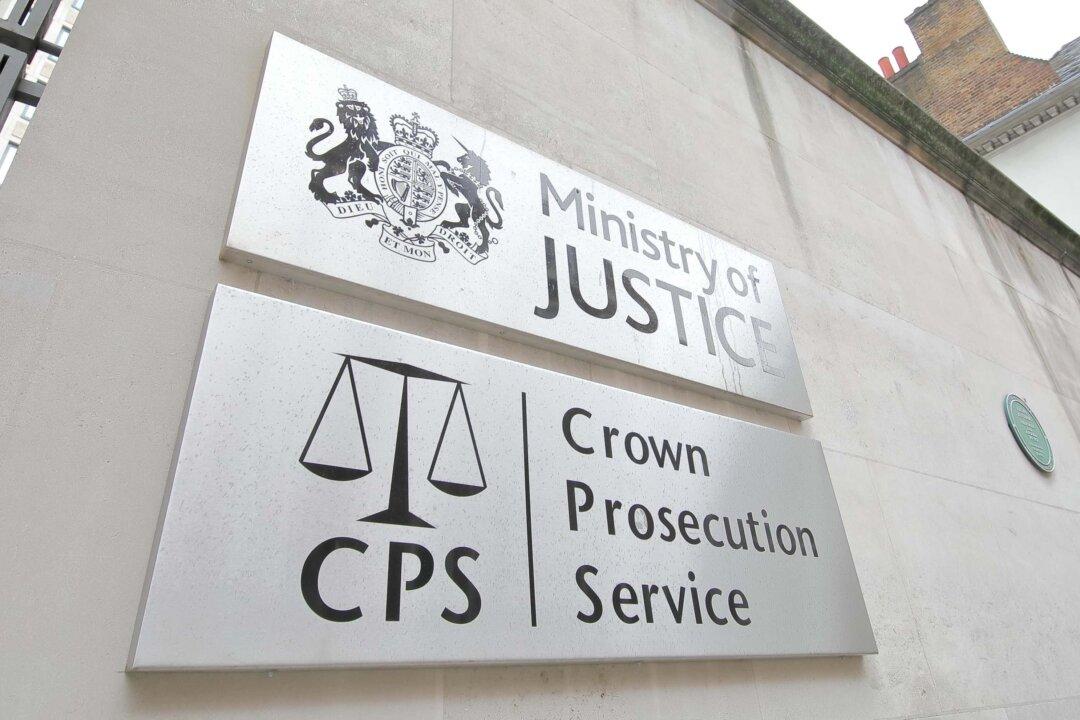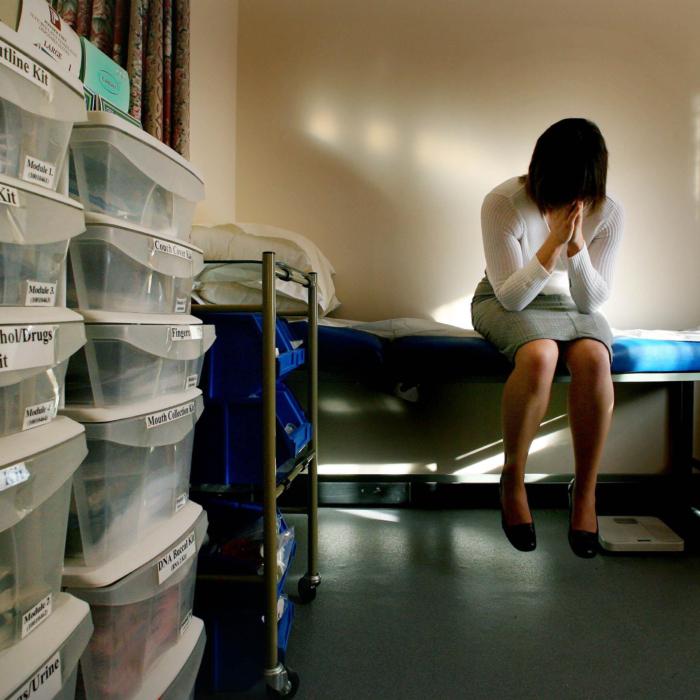A series of measures by the Crown Prosecution Service (CPS) will enhance support for victims of rape and serious sexual offences and address delays in the criminal justice system, a top prosecutor has announced.
Director of Public Prosecutions Stephen Parkinson vowed to change the system and provide more support for victims, who often disengage with their cases when faced with long delays.
“I know of the dark shadow people waiting for criminal proceedings are living under - it can prevent healing and damage relationships. Consistent, clear communication is vital to support victims to continue with the process and help us secure justice,” he said in a statement on Thursday.
He acknowledged that the CPS hasn’t “been getting this right,” amid a rise in criminal court backlogs, with delays leaving victims facing a three-year wait for some trials to start.
The current backlog stands at 82,000 cases, which is 85 percent above the levels seen before the COVID-19 pandemic. The CPS expects the workload to grow by around 10 percent next year. In response to these challenges, the CPS aims to increase the number of prosecutions of rape and sex cases.
Adult victims are now being offered pre-trial meetings with the CPS to provide clarity and support throughout the legal process.
A dedicated Victim Liaison Officer (VLO) will be available to victims as a single point of contact to answer any questions they have. The CPS reported recruiting over 40 VLOs and training over 550 staff who will be meeting victims.
Chief executive of the Victim Support charity, Katie Kempen, said that the success of the VLO role depends on how well it gets integrated in an “already complicated system.”
The CPS said one court case, which involved sexual abuse by a family member in the 1980s, was charged in 2020. A VLO said that difficulties with court listings availability resulted in the case being adjourned twice.
The officer said they had to work with the victim to “keep her engaged.”
Pilot Programs
In some areas, victims will receive direct communication—via phone calls, emails, or letters—from the CPS explaining charging decisions and outlining subsequent steps.The measure aims to clarify the legal process for victims and inform them about their rights under the Victims’ Code.
In changes to communication practices, the correspondence with victims will omit the defendant’s name at the beginning of letters to prevent re-traumatisation.
The CPS also said it will work with the police and Independent Sexual Violence Advisers and arrange drop-in sessions to help victims.
Charlotte Caulton-Scott, head of a rape and serious sexual offences unit in CPS East Midlands, said: “As a prosecutor, I see firsthand the impact these crimes have on individuals, which is why it’s so important they feel supported. These new measures put a face to a name and provide reassurance to victims.”
Victims minister Alex Davies-Jones welcomed the CPS initiatives and stressed they will help tackle the “unacceptable victim attrition rate.”
Falling Short
Speaking to the Commons Justice Committee on Tuesday, Parkinson said the CPS is falling short of its targets for delivering charging decisions.These include making decisions within three hours for suspects in custody (red cases) and within 28 days for suspects on bail (green cases).
Currently, the CPS meets these targets in 67.3 percent of red cases and 61.6 percent of green cases.
Parkinson also proposed exploring financial incentives for defence lawyers to encourage early guilty pleas, which could help alleviate delays in the justice system.
He highlighted that only about 40 percent of Crown Court trials commence on their scheduled dates. The remaining 60 percent are disrupted either by becoming “cracked trials,” where a guilty plea is entered later in the proceedings, or “ineffective trials,” which are delayed or postponed.
Reasons for ineffective trials include insufficient courtroom availability, a lack of legal representation, or victims and witnesses being unable or unwilling to testify as planned.
Parkinson warned that systemic issues in the justice process are worsening, saying, “If we don’t start doing things differently, the problem is going to just get worse.”







